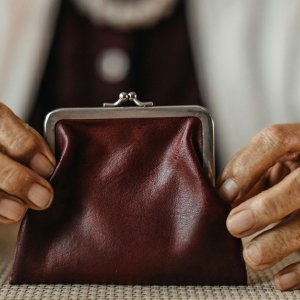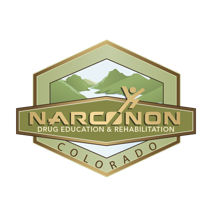Loving An Addict Without Enabling Them

The debate about the difference between enabling an addict and helping an addict has gone on for as long as, if not longer than, the drug crisis has been an issue. As more and more people require drug and alcohol rehabilitation, support groups have become a popular tool to help families come together and support each other through dealing with a loved one’s addiction and inspiring hope that recovery is possible. These groups also stress the importance of not enabling your addicted loved one.
Many of these support groups believe the largest barrier to getting an individual willing to accept any type of drug or alcohol rehabilitation help is when families enable them to continue using or drinking without consequence.
Put simply, the word “enabling” refers to any behavior a family, friend, or co-worker might do that allows an addict or alcoholic to continue drinking or using drugs.
The opposite of enabling is helping.
By “helping”, it means that any form of support that would prevent an addicted individual from seeking help is immediately stopped.
Stopping this enabling behavior is often difficult for a lot of families because it may feel as though it violates every parental instinct a person has. It’s actually quite the contrary. If an addict or alcoholic believes that their behavior has no consequences and no matter what, the family will give them a safety net, undying support, and a warm bed, often there’s no real urgency to try to get help.
That’s why these family support groups have pushed the idea of cutting off all means of support to an addict who refuses to get help in order to convince them to go to treatment.

In all actuality, this “tough love” is the real help as opposed to enabling, which just allows the furthering of a person's addiction.
This can be a hard concept for many families to wrap their heads around.
When someone's son, daughter, mother, or father is struggling with addiction, it’s difficult to watch them suffer. It’s much easier to give them the money they need to pay their rent, buy groceries, or get a bus ticket. While highly enabling, it’s the easier way out. Giving actual help to an addict or alcoholic and learning how to say “no” is hard. It takes a lot out of a person, and it’s emotionally taxing to deal with. This is precisely why some families have an extremely hard time with it.
Support groups have helped to greatly strengthen a family’s resolve to stand their ground and convince their addict to get back on the right path. Sometimes these groups aren’t enough and interventionists are used to help get someone into treatment. An interventionist’s job is to get an addict or alcoholic successfully admitted into a treatment center, however, their main function is actually as a support for the family. It may seem that the interventionist's purpose is to uncomfortably confront an addict and whisk them off to treatment, but that's not actually the case. Realistically, interventionists are used to assist the family in stopping their enabling behavior and to support them through the process of saving someone’s life.
The reason this is so hard is that many families don’t even realize that they’re enabling their loved ones. Some families may make excuses for their addict’s behavior, lend them money, cover-up stealing or other behaviors so the other parent doesn’t find out, or they may completely deny that there’s a problem at all. Stopping these behaviors can make some families feel like they’re abandoning their child or not taking care of them, and sometimes addicts or alcoholics will pull on those heartstrings. Even though it can feel like a contradiction to the parental instinct to protect your child, once enabling is stopped, the idea is to encourage them to get help at a treatment center, establish healthy boundaries and stick to them, be able to say “no,” and give them positive reinforcement for making good decisions for themselves. Should they decide to choose not to get help, not stick to healthy boundaries, and continue making destructive life choices, the family passes down consequences for these decisions.
Unfortunately, for some families, the takeaway is to impose an extreme form of “tough love,” which often includes stopping all communication with their loved one, cutting off all support, even emotional support, and more or less turning their backs on the person until enough time has elapsed where they feel the addict or alcoholic is serious about getting clean. In extreme circumstances, this can be a life-saving measure, but again, that’s only in very dire situations. More often than not, cutting off all ties with an addict isn’t necessary and can be more destructive than constructive.
Tough love isn't a bad thing at all, and honestly, the term "tough love" really means "helping" in the context of this article. It means cutting off all enabling behaviors and getting them into treatment, period. Not cutting all ties with them and saying, "we'll talk to you in a year when we think you're actually serious about being clean."
After deciding to stop enabling, some families may start viewing doing anything “nice” for their addict or alcoholic as potentially enabling. There definitely are some “grey areas” where it can be really difficult to differentiate what’s enabling and what isn’t.
For instance, if an addict gets arrested and faced with a felony, does the family hire a lawyer to prevent them from receiving a mark on their record that could affect their ability to get a good job down the line? Or does the family let them suffer the consequences with a public defender? That’s a hard decision, and honestly, each parent is the expert in the area of their loved one, so the question really becomes about what consequences the family can tolerate imposing. However, continuing to help in any way without insisting the person complete rehab is nearly always a mistake.
“Tough love” can sometimes be taken too far and make a bad situation worse where the family becomes completely unsupportive of the addict, even when they’re doing the right thing. Some families have sent a loved one to treatment, only to completely cut ties with the addict for a specific amount of time to “make sure” the addict stays on the straight and narrow. In this situation, the person has sought help but lost all of the encouragement and support of their family, despite trying to do the right thing. The mother wanted to send an encouraging letter and the father said “no, that’s enabling.” In that situation, tough love can be just straight up harmful.
A family should remain supportive of their loved one so long as they are making good, healthy decisions for themselves. Sometimes an encouraging letter or a card saying “we’re proud of you” can be extremely helpful as a person goes through treatment.
There’s no one right answer, but in deciding if something is or isn’t enabling, consider what is going to cause the greatest good for the addict and the family and do the least harm. That’s the only way to figure it out. Sometimes it’s a matter of trial and error, but one thing is for sure, and that’s the fact that enabling can potentially lead to the demise of the addict and it is often a necessary evil when dealing with a loved one who’s addicted. Just be careful that the pendulum doesn’t swing too far in the other direction.
Sources:
- https://www.healthline.com/health/enabler#takeaway
- https://drugfree.org/article/am-i-enabling-addiction-by-helping-my-child/#


